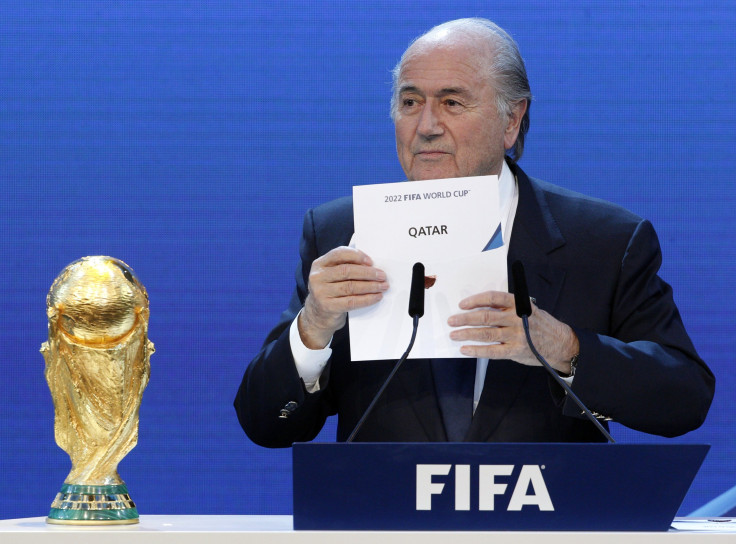FIFA World Cup 2022: 3 Major Problems With Winter Matches In Qatar

Despite protests from far and wide, it now appears certain that the 2022 FIFA World Cup in Qatar will be held in the winter. According to a report from Sports Illustrated on Wednesday, a FIFA taskforce will make the recommendation next week to hold the event in November-December of 2022, with the Executive Committee then set to finalize a decision next month.
From the moment in 2010 when the World Cup was awarded to the tiny oil-rich nation with little soccer history, the event had been shrouded in controversy. Allegations of corruption abounded and investigations commissioned. But FIFA have repeatedly insisted that the competition would not be taken away from Qatar, even if that meant moving it from its traditional summer spot in the calendar. Despite Qatar stating in their bid proposal that they were going to get around summer temperatures that can rise to 50 degrees Celsius (122 degrees Fahrenheit) with state-of-the-art cooling technology, it has seemingly been deemed infeasible.
As things stand, the first ever World Cup in the northern hemisphere winter is a go, but that decision is only the start of a complex few years ahead for everyone involved.
Here are three significant reasons why the decision will continue to cause major problems:
European Schedule Turmoil
While plenty of club competitions around the world, including Major League Soccer run through the summer, all of the big leagues in Europe, those with the most financial power and where the world’s best players are housed, run on an August-to-May calendar. While previously the World Cup was always timed perfectly to occupy the offseason, a winter competition throws the schedule and winter transfer window into turmoil.
With the wishes of the European Club Association to have the World Cup held a month or so earlier than usual, as it was in Japan and South Korea in 2002, looking set to be ignored, the upheaval will be done begrudgingly, to say the least. Even a January-February tournament would have been preferable, with most leagues having winter breaks around that time. Instead, the seasons will have to start earlier and finish later, meaning that the World Cup will not just have an impact on the 2021-2022 season, but at least a season before and following. Meanwhile, clubs will face a delicate task managing the fitness of players who have exerted themselves over the concentrated World Cup schedule right in the middle of the season.
The Confederations Cup
If Qatar is deemed unsuitable to hold the World Cup in the summer, then presumably the country won’t be able to have the Confederations Cup at that time, either. The dress rehearsal for the main event, taking place a year before the World Cup, the Confederations Cup provides both a test of the infrastructure for the host nation as well as a competition of growing importance in its own right. Will it now also be held in November and December of 2021? And, if so, will FIFA anger top European clubs further by requiring them to release their players?
Given the immense scale of development ongoing to turn the desert nation into a viable World Cup host, it would appear the World Cup perhaps most in need of a trial run. Yet it may simply be far easier to move the Confederations Cup to another country where it could be held during the summer.
Preparation Time
With the familiar summer World Cup schedule, competing national teams are generally given at least three weeks with their players ahead of the start of the competition. That provides coaches with vital preparation time in which to make final decisions about the makeup of their squad and work on specific tactical plans. As well as concentrated training, the lead up to the tournament involves countries playing several friendly matches in order to fine-tune their team. Yet it’s hard to see how that period will be maintained with a World Cup being held in November and December when it’s already incredibly complicated just to fit in the month-long competition itself.
The consequence is likely to be a decline in the quality of the matches at the World Cup and coaches focusing on safety-first soccer, having been denied the time to develop more sophisticated tactical approaches. And that may prove to be the biggest folly in FIFA’s decision. Already prestige has eked away from the international game toward European club soccer and in particular the hugely lucrative Champions League. By squeezing the World Cup uncomfortably around the European season, FIFA may well discover that they have further marginalized their own flagship competition.
© Copyright IBTimes 2024. All rights reserved.





















